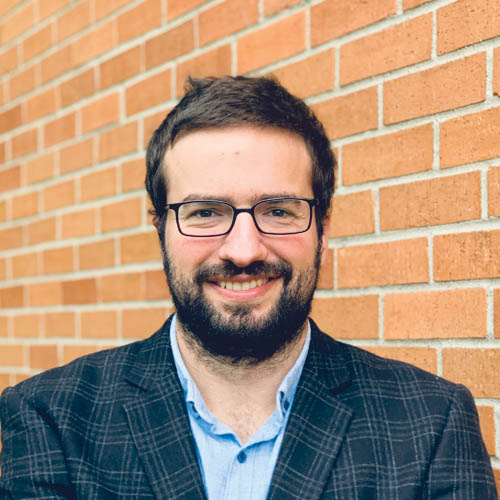
Staff Report
Armenian Studies Program Director Prof. Barlow Der Mugrdechian announced the appointment of Dr. Ari Şekeryan as the 16th Henry S. Khanzadian Kazan Visiting Professor in Armenian Studies for the Spring 2020 semester at Fresno State.
Dr. Şekeryan graduated from the Department of Oriental Studies at the University of Oxford, defending his dissertation entitled, “The Armenians in the Ottoman Empire after the First World War (1918-1923).” In the 2018-2019 academic year, Dr. Şekeryan was an Honorary Fellow at the University of Wisconsin-Madison, Institute for Research in the Humanities. Şekeryan was a Visiting Lecturer in the Faculty of Oriental Studies at Yerevan State University (summer of 2018) and a Research Assistant in the Department of Sociology at the University of Oxford in 2016.
Şekeryan’s interest in the field of Armenian Studies started to grow while he was working at the Istanbul-based Aras Publishing House. Teaching Armenian history is prohibited in the Armenian schools in Istanbul and there were only Armenian literature classes offered, but the content was limited due to the strict regulations. It was at Aras that Şekeryan became more interested in Armenian literature and history, and then started to read works from famed Armenian authors.
At the same time, he decided to pursue a Master’s degree at Bogazici University, where he had the chance to study the Late Ottoman period and the minorities in the Ottoman Empire. These two institutions, Aras Publishing and Boğaziçi University, had a great impact on his intellectual development.
When Şekeryan was visiting the Bayazid State Library to check on a few issues of Turkish and Armenian dailies for a book project that they were working on at Aras, a librarian, after seeing Şekeryan’s name on request forms, brought several volumes of Armenian newspapers, asked him to help them in cataloging. No one knew Armenian among the library staff, and he felt obligated to help them. These were the volumes of Zhamanag daily in 1918 and 1919.
Şekeryan helped the library staff in cataloguing these volumes and afterwards he visited the library twice a week to read the news items, articles, and editorials.
He was surprised when he realized the significant gap that exists in Armenian historiography regarding the Armistice years (1918-1923).
Rather than focusing on diplomatic documents, which are not great sources to analyze the inner dynamics of communities, he focused on the Ottoman Turkish and Armenian dailies to track the political and social developments and most importantly the reactions of the community leadership as well as members.
Şekeryan’s Ph.D. dissertation, “The Armenians in the Ottoman Empire after First World War (1918-1923)”, analyzes the transformation of the Ottoman Armenian political stance and the impacts of social and political developments of the period on the post-genocide Armenian community by examining the Ottoman Turkish and Armenian press as well as the Ottoman archives.
Şekeryan is currently working on two projects. One is a book, An Untold Story of Survival, which is a significant revision of his Ph.D. dissertation and secondly, he is writing an article about the story of Armenian orphans in Corfu, who were transferred from Istanbul in 1923 following the defeat of the Greek forces by the Turkish Nationalists.
Students will have the opportunity to enroll in a three-unit course, “Armenians in the Ottoman Empire after the Genocide,” to be taught by Şekeryan in the Spring 2020 semester.
The course will survey the aftermath of the Genocide in the Ottoman Empire and will analyze the Armenian community in the Ottoman Empire and modern Turkey after the First World War.
Şekeryan will also give three public lectures in the Spring semester, under the general theme of “Armenians in the Ottoman Empire After the Genocide.” Based on a collection of Armenian and Ottoman Turkish press, the lectures provide new research on a neglected period in the history of the late Ottoman Empire and Ottoman Armenians.
The first lecture, on Friday, February 7, 2020, is entitled “An Untold Story of Survival: the Armenian Community in Istanbul During the Armistice Years (1918-1923),” and will present an overview of the political and social developments that happened in the Ottoman Empire during the Armistice period and it explores how the Armenian community organized itself while facing political turmoil.
Şekeryan has never been to Fresno but is excited about meeting the Armenian community in Fresno and is looking forward to participating in community events.
“Fresno has a unique place in Armenian history and culture, and I am sure I will learn a lot from the community,” concluded Şekeryan.
 Hye Sharzhoom Armenian Action
Hye Sharzhoom Armenian Action